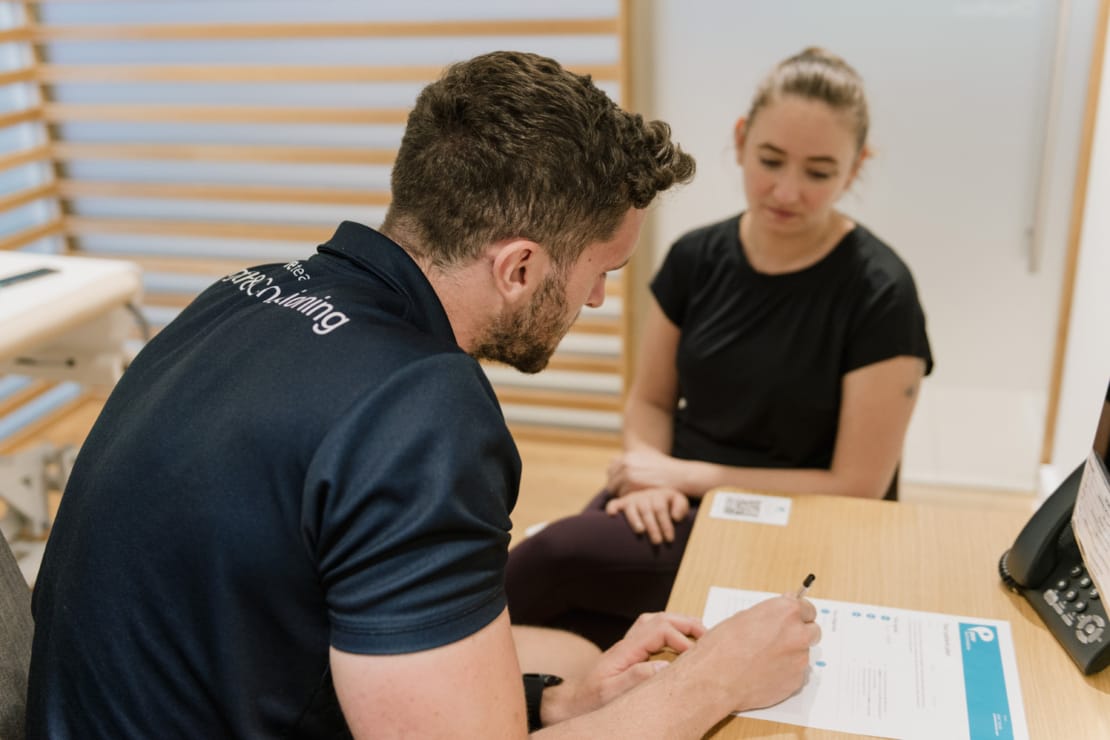Tackling Diabetes: Prevention & Management

Claire Small
Chief Clinical Officer & Consultant Physiotherapist
- 9 August, 2024
- Exercise
- Diet & Nutrition
- 3 min read
Tackling Diabetes: Prevention & Management

The rise of obesity and diabetes in recent years has sounded a call for action.
With over 4.4 million people living with diabetes — the majority of whom have type 2 diabetes — the scale of the problem is undeniable. Additionally, there is concerning estimate of 3.2 million at risk of developing type 2 diabetes.
This is not just a health crisis; it’s an economic one, with the NHS spending 10% of its entire budget on diabetes, predominantly on managing complications rather than prevention. Lifestyle choices have been shown to play a pivotal role in effectively managing and slowing the progression of diabetes and its related complications. This highlights the need for a profound shift towards preventive strategies and education to manage and mitigate diabetes effectively.
Understanding the Link Between Lifestyle and Diabetes
The intricate relationship between lifestyle choices and diabetes cannot be overstated. Obesity, largely driven by poor diet and physical inactivity, is at the forefront of type 2 diabetes risk factors. Leading consultants in diabetes and endocrinology emphasise the role of visceral fat and insulin resistance in the development of diabetes.
Insulin, a hormone produced by the pancreas, facilitates the uptake of glucose by cells for energy. However, excessive fat, particularly around the abdomen, leads to insulin resistance, where the body’s cells fail to respond normally to insulin. This dysfunction is a precursor to type 2 diabetes, highlighting the critical importance of maintaining a healthy weight through lifestyle modifications.
Preventive Strategies to Combat Diabetes
In combatting the rising incidence of diabetes diagnoses, we advocate for a multi-faceted approach centred around education, lifestyle modifications, and proactive healthcare.
A key strategy is empowering individuals with knowledge on effective diabetes management and prevention techniques. This includes dietary advice tailored to reduce insulin resistance, physical activity recommendations to aid weight loss and improve insulin sensitivity, and guidance on monitoring blood glucose levels.
Additionally, we’d like to stress the importance of regular screenings for those at risk, to identify and address pre-diabetes and gestational diabetes promptly, preventing progression to diabetes.
Personalising Diabetes Management: A Guide to Living Healthier
Everyone’s journey with diabetes is unique, necessitating personalised management plans. Each person’s treatment should be customised to fit the individual, taking into account not just the clinical aspects of diabetes but also the person’s lifestyle, preferences, and social circumstances.
This holistic approach may include a combination of medication, dietary adjustments, and physical activity, tailored to the individual’s needs and goals. For those battling weight issues, some endocrinologists, diabetes experts or Exercise Physiologists also offer an element of specialised counselling on obesity and weight loss, and recommend therapeutic intervention where necessary, ultimately providing a supportive framework for sustainable change.
Empowering Patients with Education: The Key to Sustainable Change
Education is at the heart our philosophy, and that includes tackling diabetes. By understanding the disease, its risk factors, and the impact of lifestyle choices, individuals are better equipped to make informed decisions about their health.
We are passionate about supporting individuals on their journey to a sustainable healthy lifestyle and helping people with existing diabetes address the barrier hypoglycaemia poses to safely engaging in physical activity. This empowerment through knowledge not only aids in managing diabetes but also plays a crucial role in preventing it.
Charting the Future of Diabetes Care and Prevention
Looking ahead, the future of diabetes care and prevention is promising, with a shift in the general public’s knowledge and understanding of health care, including aspects such as exercise, self-management, and nutrition.
The focus is moving towards a more proactive, preventive model of care, emphasising the importance of early intervention and lifestyle modifications. Innovations in care, including new treatment options and technology-driven solutions for monitoring and managing diabetes, are making it easier for patients to live healthier lives.
However, the cornerstone of combatting the rise in diabetes remains education and empowerment. By equipping individuals with the knowledge and tools they need to make healthier choices, we can make significant strides in tackling obesity and reducing the prevalence of diabetes and its impact on society.
The modern ‘epidemic’, we could say, of diabetes needs a comprehensive and proactive approach. Through the insights and guidance of an expert Endocrinologist, we can navigate the challenges of diabetes management and prevention.
By prioritising education, lifestyle modifications, and personalised care, we can empower individuals to lead healthier lives and chart a course towards a future where diabetes is no longer an increasing concern but a manageable condition.

Advice
Over the last 20+ years our experts have helped more than 100,000 patients, but we don’t stop there. We also like to share our knowledge and insight to help people lead healthier lives, and here you will find our extensive library of advice on a variety of topics to help you do the same.
OUR ADVICE HUBS See all Advice Hubs

